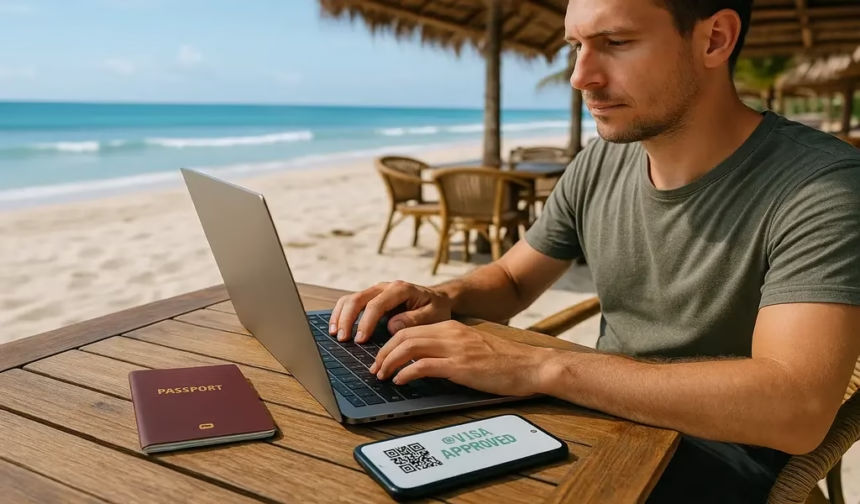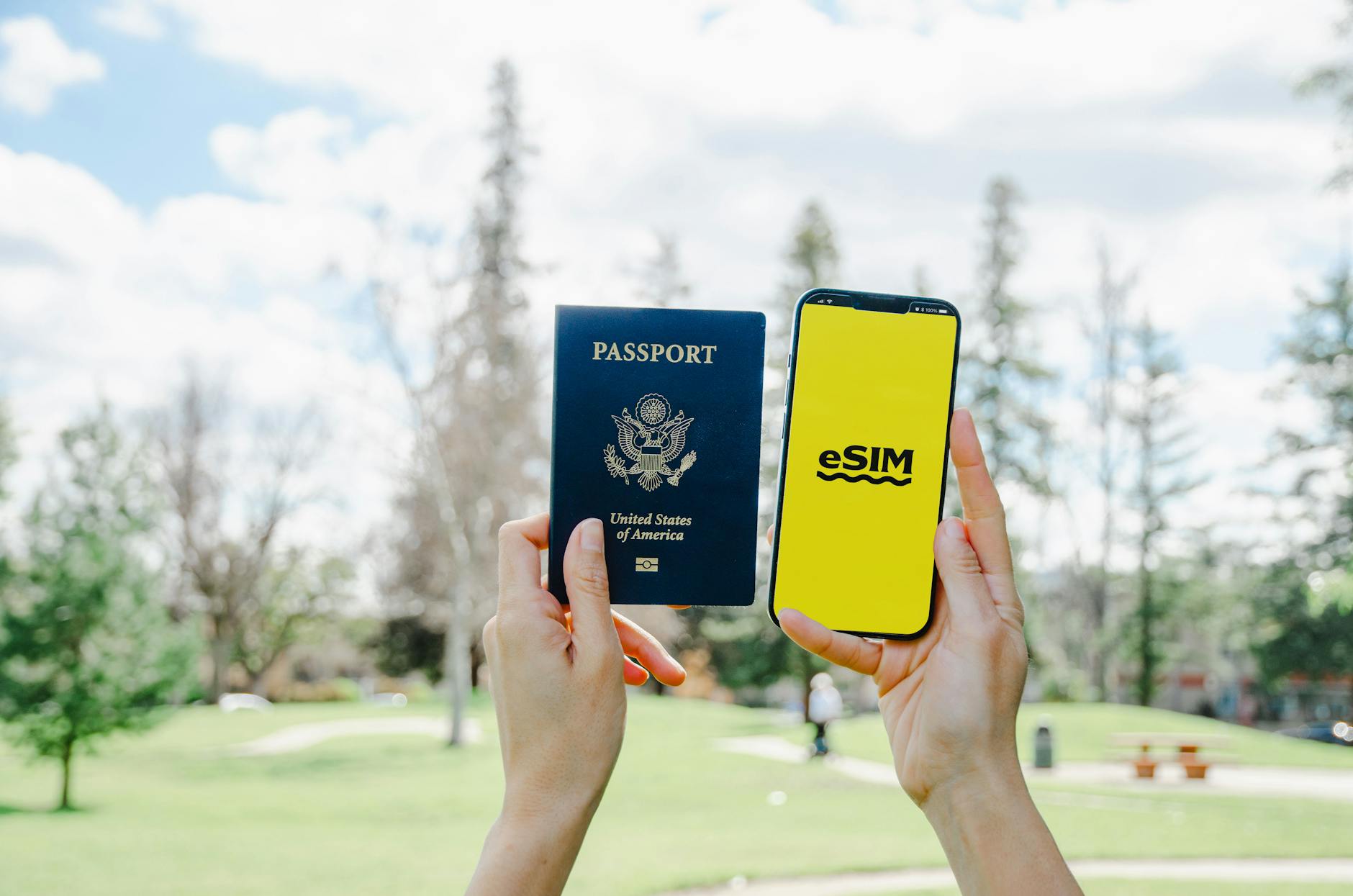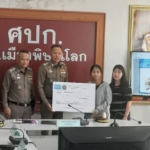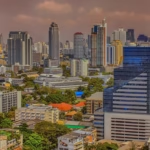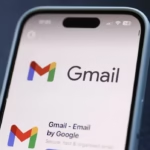Looking for digital nomad visas easiest approval? A digital nomad visa allows remote workers to live abroad while working for clients or employers abroad. Speed matters because processing time, income proof, and documents can delay your move, and some programs fill quotas fast.
This guide highlights fast-approval options, simple document lists, and clear income requirements, with examples from across Europe, Asia, and the Caribbean. Regional options like Thailand’s DTV for Digital Nomads show how policy shifts can open easier paths for long stays.
Rules change often; verify details on official government sites before you apply.
For a quick overview, see this video:
Key takeaways and what “easiest approval” really means
When people search for digital nomad visas easiest approval, they want certainty and speed. “Easy” is not one thing. It is a mix of low income thresholds, simple documents, online filing, and short processing time. The countries that score well usually publish clear rules and avoid extra steps like apostilles or in-person interviews.
Key takeaways for 2025
- Income threshold matters most: Under 2,000 to 3,000 USD per month is generally accessible.
- Simple documents win approvals: a passport, income proof, remote-work evidence, insurance, and a clean record are typical.
- Online application speeds decisions: Full online filing and no embassy visit reduces delays.
- Predictable timelines reduce risk: Approvals in 2 to 6 weeks help you plan travel and housing.
- No local work allowed: Most visas require foreign income only and forbid work for local clients.
What counts as the easiest digital nomad visas
Truly easy programs give you a straight path with minimal friction. The key is low barriers at every step: income proof, documents, fees, and timing. Public guidance should align with what case officers request, so you are not surprised during review.
| Criteria | Why it matters | Benchmark for “easy” in 2025 |
|---|---|---|
| Minimum income requirement | Determines basic eligibility | 1,500 to 3,000 USD per month |
| Document complexity | Fewer extras mean fewer delays | No apostille or in-person interview |
| Application channel | Online filing keeps timelines predictable | 100% online, upload PDFs, pay online |
| Processing time | Impacts move-in date and bookings | 2 to 6 weeks |
| Fees | Low upfront cost reduces financial pressure | Under 300 to 600 USD total |
| Eligibility scope | Broader rules fit more applicant profiles | Accepts employees and freelancers |
| Renewal terms | Supports longer stays without full reapplication | 1 to 2-year renewals with the same rules |
A proper framing: easy approval means meeting clear, doable rules with minimal extra steps. Reports summarizing global programs identify the same pillars, especially low documentation, online processes, and modest income levels. See this overview of streamlined programs and application tips in the country-by-country nomad visa guide.
Fast approval digital nomad visa signals
Look for these signals before you apply. They often track with faster outcomes and fewer rejections.
- Plain-language income rules: Monthly figures listed upfront, with accepted proofs like payslips, invoices, and bank statements.
- Insurance checklist provided: Coverage amounts and policy dates match your planned stay.
- No apostille required: Saves weeks of prep time and courier costs.
- Online tracker or status emails: Confirms receipt and flags missing pages early.
- No interview: File once, then wait for approval by email or portal.
- Clear remote work definition: States foreign employer or clients only, no local economic activity.
For a broad snapshot of which countries keep requirements light and timelines short in 2025, scan this live-updated list of digital nomad visa countries.
What “easiest approval” does not mean
Easy does not mean automatic. Case officers rely on the documents you submit. Sloppy PDFs, inconsistent names, or income that does not match deposits can trigger rechecks.
- Not a tax exemption: Stay length and local rules determine tax exposure. Always review tax notes and consult a professional when needed.
- No work authorization for locals: Most visas ban work for local clients or companies.
- Not a replacement for residence permits: Many programs are temporary, and renewal rules can change.
Policies change. Always compare the current embassy or migration agency pages before paying fees.
Example: a practical “easy” marker in Southeast Asia
Thailand’s DTV is an example of a program built for remote workers that ticks many ease boxes, from clear eligibility to multi-entry flexibility. For a field report on costs, stay length, and how nomads use it in practice, see this guide on Thailand’s Destination Thailand Visa (DTV) for digital nomads.
Quick comparison of the easiest digital nomad visas
Use this quick scan to focus on applications where approval is predictable. For readers searching “Digital Nomad Visas Easiest Approval,” the shortlist below highlights low document loads, clear income rules, and reliable processing timelines. Figures are indicative and change; check official pages before paying fees. For context on shifting income norms, see this Forbes overview of requirements for Americans in 2025.
Key takeaways
- Fast tracks: Georgia and Croatia often move fastest with online filing and simple checks.
- Low cost: Georgia and Ecuador have the lowest fees, often under 50-100 USD.
- Income sweet spot: Many approvals land between 1,350 and 3,000 USD per month.
- Simple docs: Proof of remote work, bank statements, and insurance carry most of the weight.
- Watch fees: High-fee programs like Antigua and Barbuda are easy to access, but pricey.
Quick comparison table
This table summarizes the top options often cited for speed and simplicity. Ease scores reflect a balance of income requirement, application steps, cost, and processing time.
| Country | Income Requirement (USD/mo) | Fee (USD) | Processing Time | Initial Duration | Renewal | Ease Score |
|---|---|---|---|---|---|---|
| Georgia | 2,000 | 0 | 10 business days | Up to 12 months | Possible | 9.5 |
| Croatia | 2,400 | 75–85 | 3–4 weeks | Up to 12 months | Limited | 9.0 |
| Ecuador | 1,350 | ~50 | 1–2 months | Up to 24 months | Often renewable | 8.5 |
| Costa Rica | 3,000 | ~100 | 1–2 months | 12 months | Renewable | 8.0 |
| Greece | 3,800 | ~80 | 1–2 months | Up to 12 months | Renewable | 7.5 |
| Portugal | 2,800 | ~80 | 2–4 months | 12 months | Renewable | 7.0 |
| Antigua & Barbuda | 2,000 | 1,500 | 2–4 weeks | Up to 24 months | Not typical | 6.0 |
Note: Durations and renewals vary by case and policy updates. For a live country-by-country snapshot, review the 2025 tracker on Citizen Remote.
Who tends to approve fastest
Speed usually follows online portals, clear income checks, and no interviews.
- Georgia: Online-only process, no fee, decisions in about 10 business days.
- Croatia: Consistent portal flow, decisions in 3 to 4 weeks for complete files.
- Antigua & Barbuda: Quick reviews, but high fees reduce budget appeal.
Tip: Apply with clean PDFs, consistent names, and insurance covering the whole stay. Processing time stretches when bank statements or employer letters are unclear.
Lowest income thresholds
Applicants with modest monthly incomes find more room in a handful of programs.
- Ecuador: Around 1,350 USD per month. Low fee, moderate processing time.
- Georgia: 2,000 USD per month or savings equivalent.
- Croatia: 2,400 USD per month with standard remote work proof.
Proof often includes 3 to 6 months of bank statements, payslips or invoices, and a short employer or client letter that confirms remote status and ongoing income.
Fees and renewal basics
Upfront costs range widely and affect the total budget.
- Low fees: Georgia (0), Ecuador (~50 USD), Croatia (75–85 USD).
- Mid-range: Greece (~80 USD), Portugal (~80 USD), Costa Rica (~100 USD).
- High: Antigua & Barbuda (about 1,500 USD) trades cost for speed and a 2-year window.
Renewals usually mirror the initial criteria. Keep your income proof, insurance, and clean record ready for the extension window. Some programs offer a new application rather than a technical renewal.
Fast approval digital nomad visas at a glance
Below are concise profiles to compare eligibility and typical processing.
- Georgia
- Why is it easy: Fully online, quick decisions, no embassy visit.
- Core checks: 2,000 USD in income or savings, insurance, and proof of remote work.
- Processing time: About 10 business days.
- Best for: First-time applicants who want a simple path.
- Croatia
- Why is it easy: Clear portal flow and standard documents.
- Core checks: 2,400 USD income, insurance, and proof of remote status.
- Processing time: 3 to 4 weeks.
- Best for: Applicants who want a stable 12-month stay.
- Ecuador
- Why is it easy: Low income threshold and low fees.
- Core checks: 1,350 USD income, insurance, clean record, remote proof.
- Processing time: About 1 to 2 months.
- Best for: Budget-focused freelancers.
- Costa Rica
- Why is it easy: Predictable list of documents and timelines.
- Core checks: 3,000 USD income, bank statements, insurance.
- Processing time: About 1 to 2 months.
- Best for: Remote employees wanting a 1-year stay with renewal potential.
- Greece
- Why is it easy: Straightforward criteria and online submission options.
- Core checks: 3,800 USD income, insurance, remote proof.
- Processing time: 1 to 2 months.
- Best for: Higher earners seeking an EU base.
- Portugal
- Why is it easy? Clear categories for remote professionals.
- Core checks: 2,800 USD income, insurance, background check, remote proof.
- Processing time: 2 to 4 months.
- Best for: Those aiming for multi-year pathways.
- Antigua & Barbuda
- Why is it easy: Clear online process and short decisions.
- Core checks: 2,000 USD income, clean record, insurance, remote proof.
- Processing time: 2 to 4 weeks.
- Best for: Applicants prioritizing speed and 2-year validity over cost.
How to read the comparison
- The income requirement sets your baseline eligibility.
- Processing time signals planning risk. Add buffer for follow-up requests.
- Fees matter for budget planning. Some programs add biometrics or card issuance later.
- Renewal depends on ongoing income and insurance. Keep documents updated and consistent.
If you want a broader view before choosing a country, scan this structured guide to programs and application steps in Rippling’s country list.
Improve your approval odds, control costs, and avoid rejections
Smart preparation drives faster outcomes. Applicants who submit clean files, clear income proof, valid insurance, and on-time applications tend to move through review in weeks, not months. Use the steps below to align with programs known for speed and predictability and to match the intent behind Digital Nomad Visas Easiest Approval.
How to improve your approval odds (fast approval digital nomad visa tips)
File a complete, consistent, and readable application. The goal is to make your case officer’s job easy.
- Organize a clean folder
- Use consistent file names and dates, for example:
Passport_JaneDoe_2025-04.pdf. - Keep a single master folder with labeled subfolders: Passport, Bank Statements, Insurance, Employment, Cover Letter.
- Use consistent file names and dates, for example:
- Provide 3–6 months of bank statements
- Include full PDFs with all pages in order.
- Highlight income deposits and match them to payslips or invoices.
- Add a one-page summary listing date, source, and amount of each deposit.
- Add employment proof on the letterhead
- Submit an employer letter or client contracts on official letterhead.
- Include contact details, confirmation of remote status, role or services, and payment terms.
- For freelancers, attach two to three active contracts with foreign clients.
- Write a clear cover letter
- State your remote role, where you will be staying, and your planned dates.
- Confirm you will not work for local clients or a local employer.
- Keep it to one page, in plain language, and tailor it to the country’s rules.
- Buy health insurance with explicit terms.
- The certificate should show coverage area, coverage amount, and start and end dates.
- Match policy dates to your intended visa period and list your full legal name.
- Scan everything as searchable color PDFs
- Use a scanner, not phone photos.
- Combine multi-page documents into a single, ordered PDF.
- Match your legal name across documents
- Names must match your passport, bank accounts, contracts, and forms.
- If there is a discrepancy, include proof of name change or a bank letter.
- Apply 60–90 days before your move date
- This buffer covers follow-up questions, holidays, and courier time.
- Check the portal or email updates and respond within 24 to 48 hours.
For additional context on required documents and common add-ons like translations or background checks, review this concise primer: Ultimate Guide to the Digital Nomad Visa.
Costs to expect before and after approval
Budget for both filing and follow-up steps. Most applicants should plan for a total of 500 to 1,500 USD, depending on the country and extras.
- Government fees and residence card fees: 50 to 300 USD for filing, plus 20 to 100 USD for card issuance.
- Document legalization or apostille: 50-200 USD per document, where required.
- Certified translations: 20-100 USD per page for non-English documents.
- Health insurance for the entire visa period: 200-600 USD per year for basic global coverage.
- Courier and biometrics: 50-150 USD for shipping and in-person scans.
- Police or background checks: 20-100 USD, plus processing time.
- Extra copies, passport photos, and notary: 10-50 USD.
- Optional immigration lawyer or visa agent: 300 to 1,000 USD for review and filing support.
A simple tracker helps avoid overruns. List documents, due dates, and estimated costs, then update actuals as you proceed.
| Cost Category | Typical Range (USD) | Notes for Faster Programs |
|---|---|---|
| Government Fees | 50 to 300 | Card issuance may post-approval |
| Residence Card/Issuance | 20 to 100 | Pay at pickup or local office |
| Legalization/Apostille | 50 to 200 per doc | Often not required in “easy” schemes |
| Certified Translations | 20 to 100 per page | Needed if documents are not in English |
| Health Insurance | 200 to 600 per year | Match dates to visa period |
| Courier and Biometrics | 50 to 150 | Depends on the embassy’s steps |
| Police/Background Checks | 20 to 100 | Order early, allow mailing time |
| Photos, Copies, Notary | 10 to 50 | Keep spares for renewals |
| Lawyer or Agent (Optional) | 300 to 1,000 | Helpful for tight deadlines |
Looking for fast, low-friction options by country? Scan this structured list: 17 Easy Digital Nomad Visas to Apply for in 2025.
Common reasons for rejection and how to fix them
Rejections usually come from missing pages, unclear income, or timing errors. Close these gaps before you submit.
- Insufficient income proof or deposits do not match the invoices
- Fix by matching each deposit to an invoice or payslip, and include a summary sheet.
- Missing bank statement pages or a low account balance
- Upload complete monthly PDFs with all pages. Maintain a stable balance that aligns with income requirements.
- Expired passport or short validity
- Renew before applying if you have less than 12 months left. Many programs require at least 6 to 12 months of validity.
- No apostille where required
- Confirm the need on the official instructions. Order apostilles early for background checks and civil records.
- Vague employment letters
- Rewrite with clear role, remote status, compensation, and direct contact details on letterhead. Add contract numbers and term dates.
- Insurance coverage is missing a coverage area or dates.
- Submit a certificate that lists the coverage area and exact dates. Highlight the lines that show these fields.
- Applying too late
- Start 60 to 90 days ahead and build a 2-week buffer for follow-up requests.
Before submission, review your package end-to-end. Confirm every checklist item, then export your final PDFs and back them up.
FAQs about the easiest digital nomad visa approvals
Quick answers to common questions help you decide where to apply and how to prepare. If your goal is Digital Nomad Visas Easiest Approval, focus on countries with clear income rules, simple documents, and predictable processing time. The guidance below summarizes what most applicants ask before they file.
What is the easiest digital nomad visa to get approved?
Several programs stand out for speed and light paperwork. The right choice depends on your income and timeline.
- Georgia: Reported decisions in about 10 business days, online-first process, and straightforward proof of remote work. Suitable for applicants who want a quick answer and concise steps.
- Albania: Low recommended income level, online process, and practical documentation. Best for budget-focused applicants who want a flexible base.
- Croatia: Consistent online filing and standard documents, with decisions in 3 to 4 weeks for complete files.
Tip: If your monthly income is moderate, Albania and Georgia are strong options. If you can wait a few weeks and want to stay in the EU, Croatia is a reliable option. For a broad comparison, see this live list of programs and requirements on Citizen Remote.
Which digital nomad visa has the lowest income requirement?
A few programs set the bar lower than most, which helps first-time applicants and new freelancers.
- Colombia: Around 750 USD per month, among the lowest in 2025. Ideal for lean budgets and early-career freelancers.
- Albania: Roughly 880 USD per month is often cited as a practical benchmark.
- Ecuador: About 1,350 USD per month, with simple documents and low fees.
Some programs accept savings in place of monthly income, or a mix of both. Georgia is often cited as allowing income or savings, along with standard insurance and proof of remote work. Always confirm the latest criteria on the official site before filing.
How fast can I get approved for a digital nomad visa?
Processing time varies by country and by the quality of your documents.
Typical timelines for fast approval digital nomad visas:
- Georgia: About 10 business days for clean, complete files.
- Croatia: About 3 to 4 weeks with consistent documents.
- Albania: Often fast with online submission.
- Ecuador: About 1 to 2 months, low fee, and moderate checks.
- Antigua and Barbuda: About 2 to 4 weeks, but fees are high.
Ways to speed things up:
- Submit complete bank statements for 3 to 6 months, with matching payslips or invoices.
- Include an employer letter or client contracts that confirm remote work and ongoing income.
- Buy health insurance that clearly shows the coverage area and dates that match your stay.
- Order background checks early. If apostilles or certified translations are needed, add extra time.
- Use readable, searchable PDFs with consistent names.
For a structured overview of documents and application steps, see the Ultimate Guide to the Digital Nomad Visa.
Can couples or families apply together on a nomad visa?
Most programs allow dependents. Expect added income thresholds and a few extra documents.
- Dependents: Spouses and minor children are typically allowed. Some programs accept long-term partners with proof of cohabitation.
- Income: Add a set amount per dependent. The figure varies by country, often 20 to 30 percent extra for a spouse and 10 to 20 percent per child.
- Documents to prepare:
- Marriage certificate for spouses, or proof of partnership where allowed.
- Birth certificates for children.
- Proof of shared housing or planned address.
- Health insurance that covers every family member for the whole stay.
- Background checks for adults were required.
- Fees: Expect additional government fees per dependent, plus card issuance costs on arrival, if applicable.
Translations and legalization may be required for civil records. Start early if apostilles are needed, since that can add several weeks.
Do I pay local taxes on a digital nomad visa?
Tax rules depend on residence, not the visa label. A common rule of thumb is the 183-day test. If you spend more than 183 days in a year in one country, you may become a tax resident there and owe local taxes on worldwide income. Double tax treaties and exemptions can affect the outcome.
- Basic guidance:
- Under 183 days, many travelers avoid tax residency. Local rules still apply to certain income types.
- Over 183 days, you may be a tax resident and taxed on worldwide income, except where exemptions apply.
- Keep records of entry and exit dates, income, and expenses.
Review high-level thresholds and current norms in this 2025 overview for Americans by Forbes. Complex cases require a tax advisor who understands both your home and host countries.
Can I work for local clients on a digital nomad visa?
Most digital nomad visas forbid local economic activity. You are expected to earn from foreign clients or a foreign employer.
- What this means:
- You can work remotely for companies or clients based outside the host country.
- You generally cannot sign local clients, bill locally, or take a local job.
- Violations can lead to fines, visa cancellation, or bans.
Always read the program’s terms on local work. If you plan to take local clients, you may need a different permit category.
Do I need a background check or an apostille to apply?
Many programs require a recent police clearance for adults. Some ask for an apostille or legalization, especially for background checks and civil records.
- Common requirements:
- Police or FBI check issued within the last 60 to 90 days.
- Apostille or legalization for documents issued in another country.
- Certified translations if documents are not in the official language or English.
- Timing to plan:
- Background checks can take 1 to 4 weeks.
- Apostilles can add 1 to 3 weeks, depending on your state or country.
- Translations add several days and costs per page.
Order these items first to avoid delaying your application. For a country-by-country snapshot of application steps and document expectations, see Rippling’s overview of countries with digital nomad visas.
Conclusion
For digital nomad visas easiest approval, the shortlist is clear. Fastest approvals: Georgia, Barbados, Malta, UAE. Lowest income: Mauritius, Georgia, Malaysia. Family-friendly: Spain, Portugal, Croatia. Pick based on your income, timeline, and dependents, then keep processing time and documents tight.
Next steps:
- Pick a country that matches your income and timeline
- Gather documents, bank statements, insurance, and proof of remote work
- Draft a one-page cover letter that confirms foreign income and no local work
- Apply 60 to 90 days before your move date
Rules can change; verify details on official sites before paying fees. Join our newsletter for updates, related visa guides, and tax basics, and speak with a tax professional for advice on residency and filings.
Start your application this week and secure your move on your terms.





